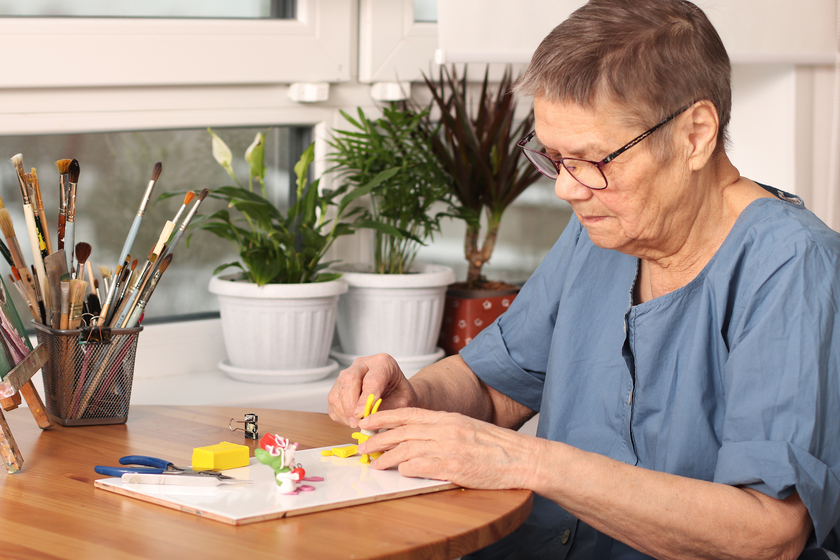How Boutique Memory Care Improves Daily Living for Aging Loved Ones
Everything About Memory Treatment Providers: Why Little Memory Treatment Residences Are a Great Option
Memory care solutions play a vital duty in sustaining individuals with Alzheimer's and dementia. Small memory care homes stand out for their personalized approach and intimate setup. With lower staff-to-resident proportions, these homes cultivate stronger connections and tailored care. Citizens gain from enhanced social communications and a safe setting. As households check out options, understanding the unique benefits of tiny memory treatment homes ends up being crucial. What aspects should be considered when selecting the right home?
Recognizing Memory Treatment Solutions
While several may recognize with general senior treatment alternatives, comprehending memory treatment solutions is necessary for families dealing with the difficulties of cognitive decline. Memory care particularly satisfies people with conditions such as Alzheimer's condition and other kinds of dementia. These solutions give a structured environment that concentrates on enhancing the high quality of life for locals with specialized treatment and support.Memory treatment facilities are made to assure safety and safety and security, typically featuring protected settings to stop roaming. Educated personnel are available all the time to aid with day-to-day tasks, medicine administration, and individual treatment. Furthermore, memory treatment programs commonly consist of cognitive stimulation tasks, customized to engage citizens and promote mental health. Households can benefit from comprehending these solutions, as they make it possible for educated decisions regarding their loved ones' treatment, making sure that their details requirements and preferences are addressed in a compassionate and encouraging fashion.
The Advantages of Little Memory Care Homes
Tiny memory treatment homes use unique advantages that can greatly enhance the lifestyle for citizens with cognitive problems. One substantial benefit is the intimate environment, which permits individualized interactions among staff and residents. This smaller setup fosters meaningful partnerships, decreasing feelings of seclusion and stress and anxiety commonly experienced by people with memory issues.Additionally, the lower staff-to-resident ratio in small memory care homes makes it possible for caregivers to give even more alert supervision and assistance. This technique not only enhances safety however also promotes a complacency for the residents.Moreover, tiny memory care homes can adapt promptly to the unique requirements and preferences of each citizen, permitting for a much more homey atmosphere. Such a setting can motivate social engagement and engagement in activities, ultimately improving the daily experiences of those living with cognitive problems.
Personalized Treatment Program for Locals
Individualized care plans are important in memory treatment homes, as they accommodate the special needs and choices of each local. These strategies start with detailed evaluations conducted by competent specialists, who assess cognitive abilities, clinical background, and individual interests. This customized method guarantees that care is not just efficient yet also considerate of each person's dignity and autonomy.Moreover, personalized care plans are flexible, enabling adjustments as citizens' requirements develop in time. This versatility promotes a sense of security and familiarity, which is important for individuals dealing with memory challenges. Caretakers are trained to carry out these strategies constantly, providing support that lines up with the locals' regimens and preferences.Ultimately, individualized treatment plans improve the quality of life for homeowners by advertising well-being, freedom, and involvement, making them a basic facet of memory treatment solutions in little memory treatment homes.
Creating a Home-Like Atmosphere
Developing a home-like atmosphere is important for cultivating comfort and experience in memory care settings, as it greatly influences residents' psychological well-being. Small memory treatment homes commonly focus on personalized touches, such as cozy color schemes, household photos, and familiar furniture setups, which help residents really feel much more at convenience. Including components evocative a traditional home, like comfy living rooms and communal areas, urges a sense of belonging.Moreover, using all-natural light and outdoor spaces can improve the atmosphere, promoting relaxation and serenity. Staff members play a significant duty in maintaining this setting by involving with citizens in a compassionate fashion, treating them like family members. Routine activities, such as food preparation or gardening, can likewise add to a home-like feel, using chances for citizens to join significant experiences. On the whole, developing a nurturing setting sustains cognitive function and psychological security, making it a crucial facet of memory treatment services.
Enhanced Social Interaction and Area
Enhanced social communication and area are vital parts of memory care solutions. By fostering customized social engagement and developing a family-like ambience, these services advertise significant links among residents. Group events and activities further encourage involvement, aiding people feel more included and sustained.
Personalized Social Involvement
While social communication is necessary for overall well-being, many people with memory impairments commonly have a hard time to involve meaningfully with others. Customized social engagement in memory care homes addresses this challenge More about the author by developing tailored tasks that deal with locals' one-of-a-kind passions and capabilities. By concentrating on private choices, caretakers can foster links that resonate deeply with each individual. Activities such as art treatment, songs sessions, and directed discussions promote cognitive excitement and psychological expression. In addition, tiny group setups motivate sociability and enable even more see post intimate communications, enhancing feelings of belonging. This technique not only battles sensations of isolation but likewise empowers homeowners to keep a feeling of identification, ultimately adding to improved psychological health and high quality of life.
Family-like Ambience
In a memory care setup, fostering a family-like ambience significantly enhances social interaction and builds a feeling of area among locals. Smaller memory treatment homes usually focus on intimate atmospheres, enabling homeowners to create closer links with each other and personnel. This nurturing ambience promotes depend on, which is vital for people with memory problems. Homeowners are most likely to talk and share experiences, creating an encouraging network that eases sensations of isolation. The experience of common rooms and regimens adds to a feeling of belonging, better encouraging social communication (personalized memory care). In such setups, emotional bonds thrive, leading to boosted overall well-being and a higher quality of life for homeowners as they browse their day-to-day experiences with each other
Team Activities and Occasions

Security and Safety Attributes in Tiny Residences
Several tiny homes designed for memory care include essential safety and security and security functions to guarantee the wellness of locals. These homes usually make use of safe and secure entry and departure factors to avoid straying, an usual worry among individuals with memory disabilities. Furthermore, security systems and alarm mechanisms boost surveillance, making certain that personnel can quickly react to any type of unusual activities.Interior designs are tailored for safety, with minimized hazards such as clutter-free paths and sharp corners. Handrails and non-slip flooring are usually set up to minimize the threat of drops. Team participants are trained in emergency situation protocols, guaranteeing they are planned for various situations.Moreover, individualized care plans may consist of evaluation of individual safety needs, giving tailored options for each and every homeowner. Overall, these safety and protection functions develop a caring environment where residents can thrive while maintaining their self-respect and freedom.
Just how to Pick the Right Memory Treatment Home
Just how can households guarantee they choose the most ideal memory care home for their liked ones? The choice calls for careful consideration of a number More hints of factors. Families should review the facility's personnel qualifications and training, making sure that caregivers are experienced in managing memory-related problems. Next off, it's vital to assess the home's environment, concentrating on safety and security attributes and whether it promotes a feeling of area and belonging. Going to the facility can offer understanding into everyday activities and the social environment, which are necessary for psychological excitement and psychological wellness. Additionally, family members ought to ask concerning the treatment strategies provided, ensuring they are tailored to specific requirements. Taking into consideration the home's location and access for family members brows through can contribute to a smoother change. By resolving these facets, families can make an educated decision that prioritizes their liked one's comfort and high quality of life in a memory treatment setting.
Frequently Asked Inquiries
What Credentials Should Staff Members in Memory Care Residences Have?
Employee in memory treatment homes ought to have appropriate certifications, experience in mental deterioration care, solid interaction abilities, and empathy. Continuous training in behavioral administration and healing interventions boosts their capacity to sustain residents properly.
Just How Do Memory Care Provider Differ From Conventional Assisted Living?
Memory care services focus particularly on people with memory impairments, supplying customized assistance and organized atmospheres. In contrast, standard assisted living supplies basic aid with daily activities, lacking the tailored strategy needed for those with cognitive difficulties.
What Kinds of Tasks Are Offered in Memory Care Residences?
Memory care homes commonly provide a variety of activities created to involve citizens. Common alternatives consist of art treatment, music sessions, cognitive video games, physical workouts, gardening, and social occasions, all intended at boosting well-being and cognitive feature.
Can Residents Bring Their Own Valuables to Memory Treatment Houses?
Locals can generally bring their very own belongings to memory treatment homes, enabling them to individualize their space - personalized memory care. This method assists develop an acquainted environment, advertising comfort and a feeling of identification for the individuals

Exactly How Are Family Members Associated With the Treatment Refine?
Member of the family play an important function in the care procedure, frequently taking part in decision-making, going to care meetings, and giving emotional assistance. Their involvement fosters a collective atmosphere, improving the resident's total wellness and high quality of life. While several might be familiar with basic senior care options, understanding memory treatment solutions is vital for families encountering the difficulties of cognitive decline. These services supply a structured atmosphere that focuses on enhancing the quality of life for residents via specialized treatment and support.Memory treatment centers are designed to guarantee safety and security, typically including safeguarded environments to protect against straying. Individualized treatment plans are crucial in memory care homes, as they provide to the unique requirements and preferences of each local. Staff participants in memory treatment homes should have appropriate certifications, experience in mental deterioration care, solid interaction skills, and empathy. Memory treatment services focus particularly on individuals with memory impairments, providing specific support and structured atmospheres.